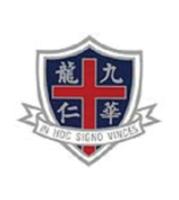| Language Policy |
All subjects except Chinese Language, Chinese History, Putonghua, Ethics & Religious Education and Physical Education are taught in English. Putonghua is used as the Medium of Instruction in the S.1-S.3 Chinese Language Curriculum for some classes. |
| Learning and Teaching Strategies |
Our mission is to nurture lifelong and self-directed learning capabilities. Students learn by experience and learn through reflection. The Academic Steering Committee and the Curriculum Development Committee are responsible for curriculum development, co-ordinating cross-curricular projects and catering for learner diversity. All teachers are subject-trained and have received recognized professional teacher training. Project learning and STEM education are emphasized in Junior Secondary so that students develop self-directed learning capabilities and apply knowledge to real-life situations. In Senior Secondary, a student can study both science and non-science subjects so as to experience a broad education. Library and Learning for S.1 students is to enhance students' ability to make use of library resources to improve thinking skills and reading skills, so as to learn how to learn. Reading Programmes are included in the English, Chinese and other subject curricula. The Bring Your Own Device (BYOD) Policy uses Information and Communication Technology to engage students in self-directed learning, honing digital competence, problem-solving skills, and communication and collaboration skills. A whole-school approach to Gifted Education is adopted to unlock the potential of each student. |
| School-based curriculum |
1. Electives: 3X and 4X. DSE Music, Visual Arts and Ethics and Religious Studies are arranged outside normal lesson hours. <br>Junior Secondary - Calligraphy included in Chinese Language Education, English Literature included in English Language Education.<br> 2. Curriculum highlights: S.4-S.6 students are offered Other Learning Experiences which include elements of arts education and national education.<br>Formation classes are offered at all levels to foster students' whole-person development. |
| Approach to Catering for Learner Diversity |
Small Class Teaching is implemented in S.6. Catering for learner diversity is achieved through school-based professional support, tailored school-based curriculum, enhancement classes in Mathematics, Chinese Language and English Language. Students' diverse needs are catered by our teachers, Educational Psychologists and School Social Workers. The whole environment is geared towards a culture of mutual respect, empathy, acceptance and collaboration. |
| Approach to Integrated Education |
Our school provides love and care for each individual student (Cura Personalis). Although the number of students with special educational needs (SEN) is small, the SEN Coordination Committee is set up to offer a holistic approach to catering for the needs of the students and supporting home-school cooperation. Members of the committee include the Vice Principal, Head of Guidance Committee, SEN Coordinator, Language and Liberal Studies teachers, School Social Workers and Educational Psychologists. By the use of the Learning Support Grant, the school buys external services for speech therapy and educational counselling services. Lesson materials are adjusted so that each individual student is encouraged to do their best according to their abilities. The school provides special examination arrangements for candidates with special educational needs, e.g. extra time allowance, special arrangements in the examination venue, etc. In addition, to foster home-school cooperation, the school arranges seminars for parents and actively collects opinions from them for betterment. Also, the school also utilizes the Grant for Supporting Non-Chinese Speaking (NCS) Students with Special Educational Needs (SEN) (NCS-SEN Grant) to provide Non-Chinese Speaking Students with timely assistance according to their needs, including social skills training group, etc. |
| Education Support for Non-Chinese Speaking (NCS) Students |
|
| Home-School Co-operation |
http://pa.wyk.edu.hk |
| School Ethos |
Our mission is to nurture 'Men of Human Excellence', with Competence, Commitment, Compassion and Conscience. Love and care, respect and justice, responsibility, strive for excellence and faith are our core values. All students are expected to exercise self-discipline and responsibility towards others. Students are given ample space to make decisions on their own so that they may grow into responsible persons with good real-life problem-solving skills. By upholding our spirit of 'unity in plurality' and 'men for and with others', we help our students learn to be empathic with others' needs, ideas and feelings. Educational Psychologists are stationed in the school to help students overcome problems they may come across. Students are reflective and respectful. They love the school and their sense of belonging to the school is very strong. |
| School Development Plan |
1. Enhance student core competencies.<br>a) Nurture students’ creativity, digital competence, problem-solving and communication skills through diverse learning opportunities for and with others.<br>b) Bolster reading and foster cross-curricular collaborations.<br>c) Align classroom education with life planning and career development.<br><br>2. Empower students to achieve self-actualization and become committed global citizens with Jesuit Values.<br>a) Foster Jesuit Values (Reflection, Self-acceptance and Positivity, Curiosity and Creativity, Freedom and Self-discipline, Participation and Responsibility) in order to be open to life-long growth.<br>b) Support students to reach their potential and be leaders in service. <br>c) Strengthen students’ national identity and global awareness to be committed global citizens. |
| Teacher Professional Training and Development |
Profile of the Ignatian Educator for the Chinese Province: 5 Characteristics<br>1. Live Out the Ignatian Vision<br>2. Inspire with Ignatian Pedagogical Paradigm (IPP)<br>3. Be a Caring Educator<br>4. Seek for Better Ways to Teach and Learn<br>5. Be a fellow Builder of Community |
| Life-wide Learning |
Students' Association, Catholic Association, Music Association, Sports Committee, House Committee, Scout Troops, Air Scout Troops, over 40 Clubs and Societies. |
